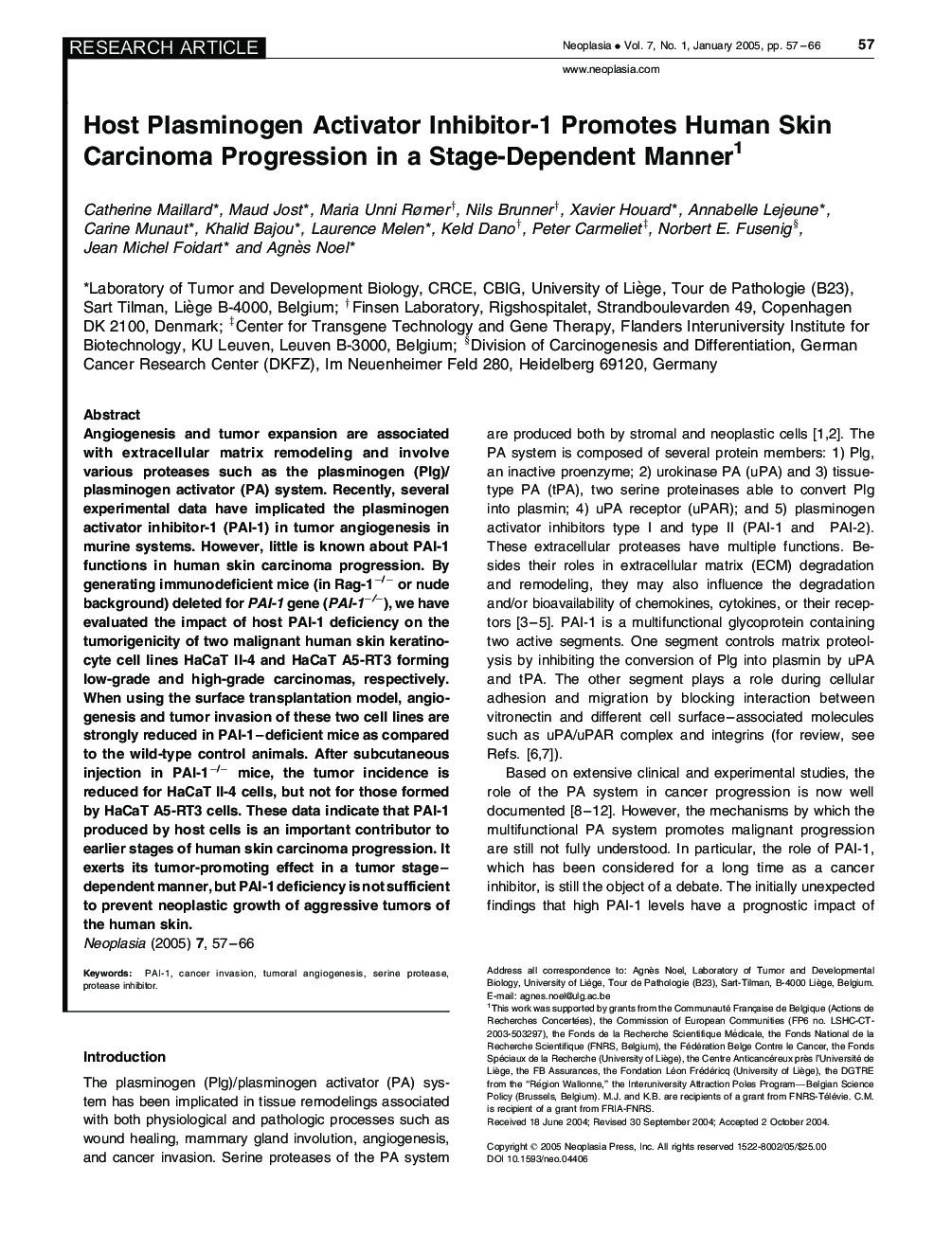| Article ID | Journal | Published Year | Pages | File Type |
|---|---|---|---|---|
| 10915452 | Neoplasia | 2005 | 10 Pages |
Abstract
Angiogenesis and tumor expansion are associated with extracellular matrix remodeling and involve various proteases such as the plasminogen (Pig)/plasminogen activator (PA) system. Recently, several experimental data have implicated the plasminogen activator inhibitor-1 (PAI-1) in tumor angiogenesis in murine systems. However, little is known about PAI-1 functions in human skin carcinoma progression. By generating immunodeficient mice (in Rag-1-/- or nude background) deleted for PAI-1 gene (PAI-1-/- ), we have evaluated the impact of host PAI-1 deficiency on the tumorigenicity of two malignant human skin keratinocyte cell lines HaCaT II-4 and HaCaT A5-RT3 forming low-grade and high-grade carcinomas, respectively. When using the surface transplantation model, angiogenesis and tumor invasion of these two cell lines are strongly reduced in PAI-1-deficient mice as compared to the wild-type control animals. After subcutaneous injection in PAI-1-/- mice, the tumor incidence is reduced for HaCaT II-4 cells, but not for those formed by HaCaT A5-RT3 cells. These data indicate that PAI-1 produced by host cells is an important contributor to earlier stages of human skin carcinoma progression. It exerts its tumor-promoting effect in a tumor stage-dependent manner, but PAI-1 deficiency is not sufficient to prevent neoplastic growth of aggressive tumors of the human skin.
Related Topics
Life Sciences
Biochemistry, Genetics and Molecular Biology
Cancer Research
Authors
Catherine Maillard, Maud Jost, Maria Unni Rømer, Nils Brunner, Xavier Houard, Annabelle Lejeune, Carine Munaut, Khalid Bajou, Laurence Melen, Keld Dano, Peter Carmeliet, Norbert E. Fusenig, Jean Michel Foidart, Agnès Noel,
